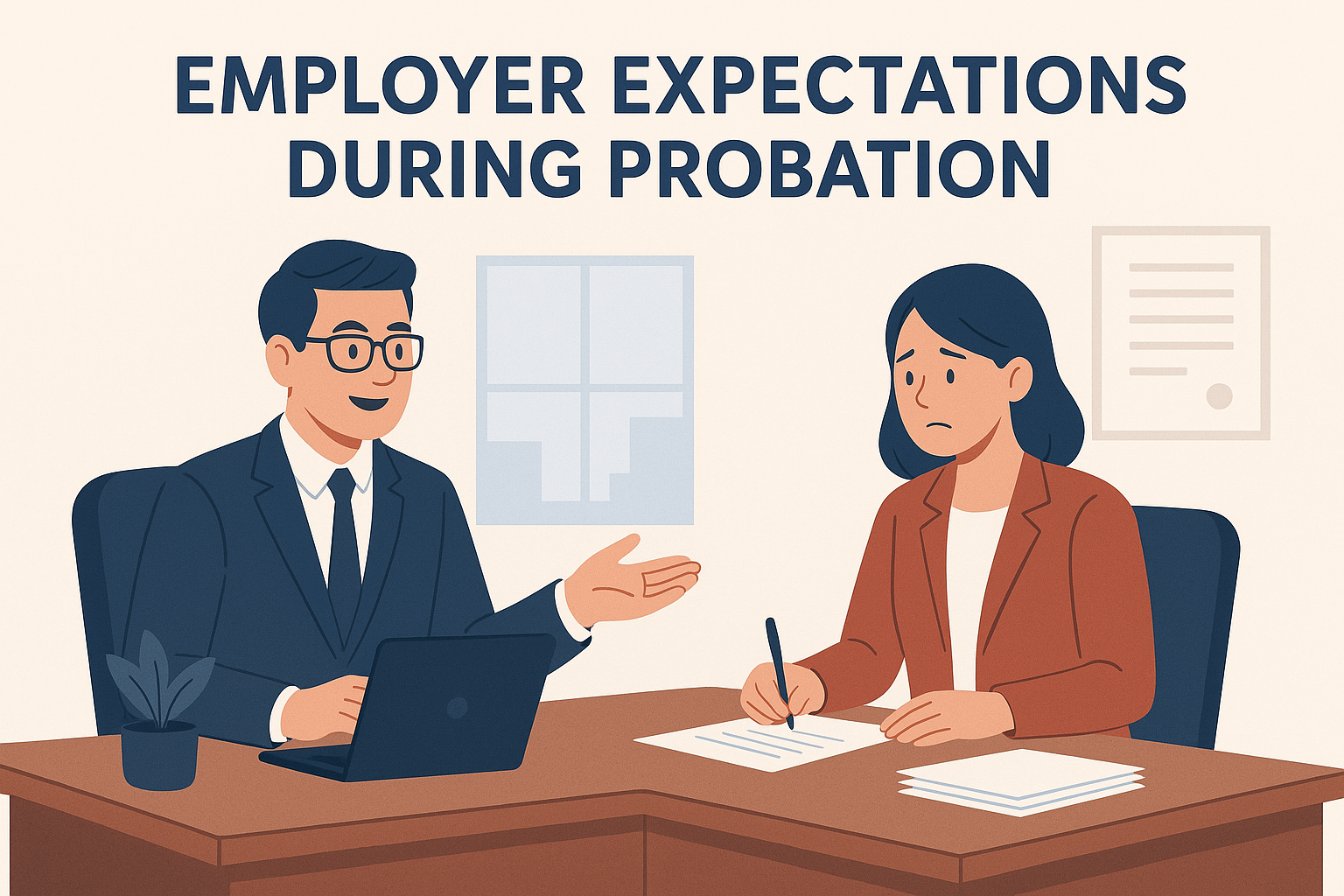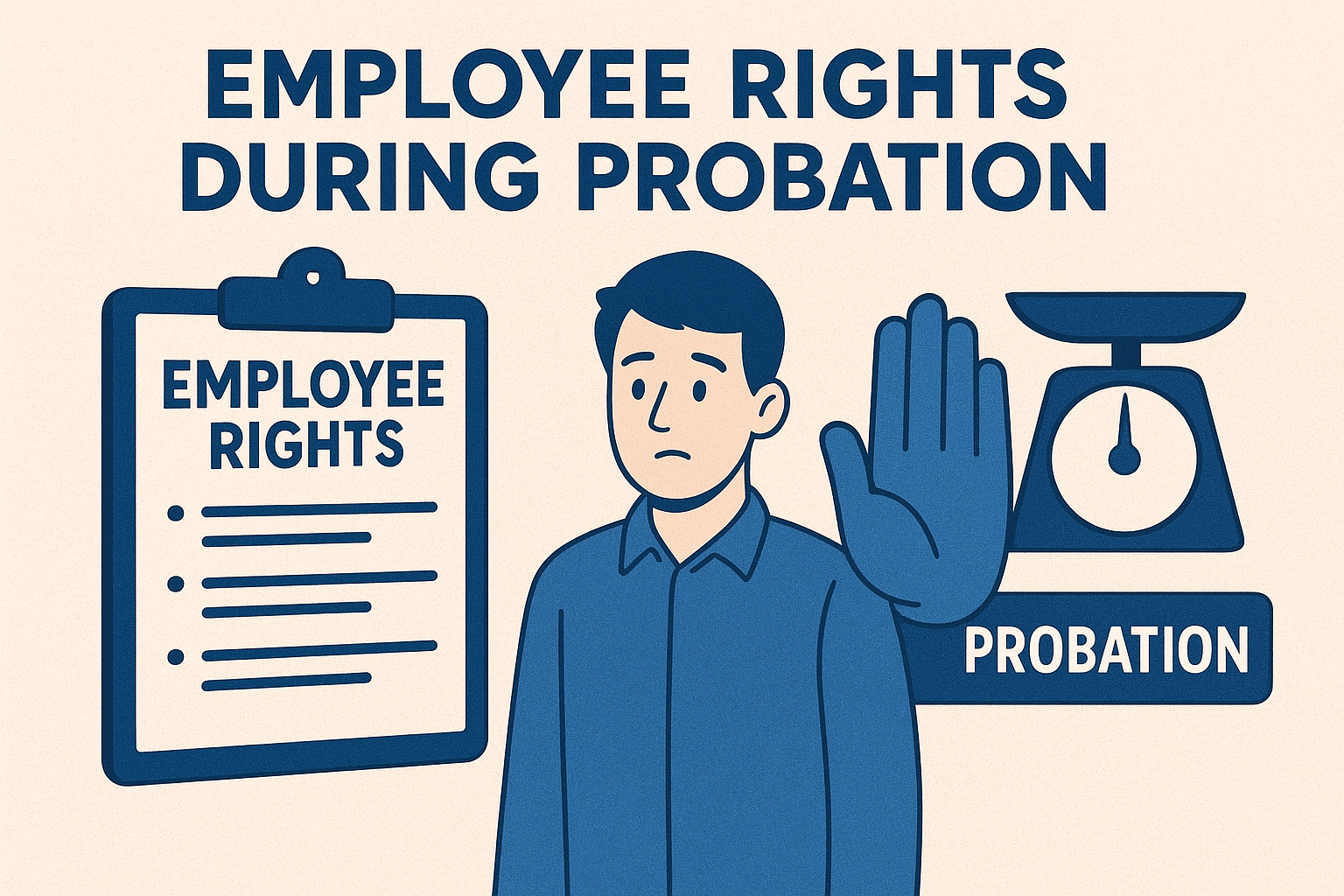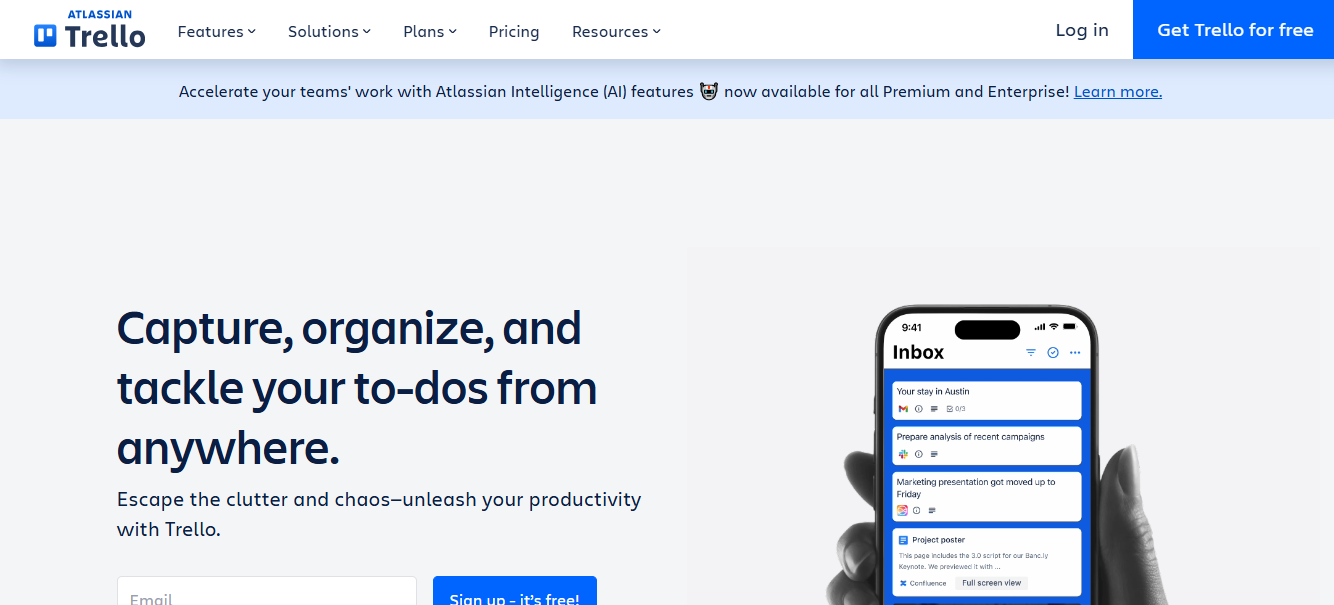If you are asked, “What is a probationary period in the UK?” What will be your response? Do you want to know probation period meaning?
Whether starting your first job, switching careers, or stepping into a new role, those initial few months can be exciting and nerve-wracking.
But what is a probationary period, exactly?
A probationary period is a period at the beginning of a new job where the employer evaluates your performance, behaviour, and suitability for the role.
Think of it as a “trial run” for the company and the employee. It gives both sides a chance to make sure the fit is right before fully committing to a long-term employment relationship.
But why do probation periods exist?
Employers want to see how well you meet expectations in real-time, on the job. Sure, your CV and interview might have impressed them, but probation helps validate that decision.
And here’s something we can agree on: no matter how qualified someone is, there’s no better test than actually doing the work.
You may wonder if it’s all about the employer testing the employee. Not quite.
Job probation rules in the UK also allow you, as the employee, to assess whether the company culture, team, and job responsibilities align with your career goals and values.
So, yes, this period is just as much for you as it is for them.
Understanding the Probationary Period in the UK
You’ve heard the term tossed around in contracts and interviews, but what does it actually mean in practice?
Here’s an example: You land a new job in London. Your offer letter mentions a three-month probationary period. You’re thrilled, but unsure what to expect. This section will help clear things up.
What Does Probation Mean in a Job?
What is passing probation at work? In simple terms, a probation period in a job is a set timeframe, usually between one and six months, where your employer assesses how well you’re adjusting to the role.
During this time, your employer watches how you meet key performance indicators, follow workplace policies, and adapt to company culture.
Read Also:
But what are probation periods, exactly?
In the UK, they’re a common part of employment contracts across most industries. While no law says a job must include a probation period, it’s a widely used practice to ensure a proper fit.
According to the Chartered Institute of Personnel and Development (CIPD), over 80% of UK employers use probation periods to evaluate new hires.
The goal? To confirm that the decision to hire was the right one for both sides.
Standard Duration of Probation Periods
So, how long does a typical UK probation period last? There are job probation rules UK.
Here’s the deal: most employers set a three-month probationary period. But depending on the company, role, or seniority level, it can range from one to six months.
A 2023 report from People Management showed that nearly 70% of organisations stick to a 3-month standard. That said, some companies extend probation for up to six months if more time is needed to evaluate performance properly.
The contract during probation usually outlines:
- Length of probation
- Goals and expectations
- Terms for ending or extending the probation
- Probationary period notice length
What Happens After the Probationary Period?
You’ve made it through the trial. Now what?
Once your probation is over, your employer will typically hold a formal end-of-probation review. This review covers:
- Your overall performance
- Whether you’ve met the required standards
- Feedback from your line manager or team
- A decision on confirming your permanent status
But you’re probably wondering, what happens if you don’t pass?
If your performance doesn’t meet expectations, your employer might:
- Extend the probation period
- Offer additional training
- Terminate your contract (following termination during probation UK laws)
The bottom line? Probation isn’t a trap; it’s an opportunity. A chance to make sure you’re on the right path before either side makes a long-term commitment.
Read Also:
Employer Expectations During Probation

Now that we’ve covered what a probationary period is and what it means in a UK job, let’s flip the lens.
What exactly are employers watching for during this stage, and what are UK employee rights probation?
Here’s the kicker: It’s not just about doing your job. Employers are evaluating your attitude, consistency, adaptability, and even how you handle mistakes. It’s a full-picture review of your professional self.
Performance and Behaviour Assessment
First and foremost, employers want to see how well you perform in the role you were hired for. This includes:
- Delivering results on time
- Showing initiative
- Being open to feedback
- Meeting key performance indicators (KPIs)
Let me explain. A probationary period is not just a “wait and see” phase; regular assessments usually guide it.
For example, many UK employers schedule fortnightly or monthly check-ins during probation. These check-ins serve as informal performance reviews.
And here’s something we can both agree on: consistent effort matters more than perfection.
- But what are employers really looking for?
- Do you ask the right questions?
- Are you proactive about learning?
- Are you meeting your goals, or just scraping by?
According to a survey by Glassdoor, 76% of UK hiring managers say the first 90 days are critical in deciding whether a new hire stays or goes.
Read Also:
Attendance, Punctuality, and Cultural Fit
Here’s one that surprises many people: timekeeping.
Yes, being on time still matters. And during your probation, it’s under the spotlight. Regular tardiness even by 5 or 10 minutes can be a red flag.
You may wonder if showing up late once or twice ruins your chances. Not necessarily. But patterns do matter.
And then there’s cultural fit. Companies want people who align with their values and collaborate well with others. This doesn’t mean you need to be best friends with your team, but you should be respectful, inclusive, and receptive.
In many cases, being a good “fit” can be just as important as performance.
Role Responsibilities and Feedback Cycles
Let’s look at an example. Say you’re hired as a project coordinator. Your job description lists tasks like managing deadlines, communicating with vendors, and updating the project dashboard.
But during your probation, you’re expected to prove you can manage those tasks under pressure and adapt quickly when things change.
That’s where feedback comes in.
Many UK employers follow a structure of continuous feedback during the probation phase. You’ll likely have regular catch-ups with your manager where you’ll hear what you’re doing well and where you need to improve.
The purpose? To help you grow, not to catch you out.
But here’s the deal: you must be open to and act on that feedback.
What’s the bottom line?
If you can deliver solid results, show a good attitude, and work well with others, you’ll likely pass probation with flying colours.
Read Also:
Employee Rights During Probation

But wait: what are your rights as an employee during the probationary period? Do you have any?
The short answer is yes. While it might feel like you’re being closely observed (and you are), UK employment law still protects you, even in probation.
Let’s break it down.
Notice Period and Termination Rules
Here’s something many new hires overlook: the probationary period notice.
During probation, your notice period is typically shorter. Some contracts state one week; others may allow immediate termination. But don’t panic, employers still have to follow the law.
For example, under the Employment Rights Act 1996, you’re entitled to at least one week’s notice after one month of continuous employment, even during probation.
And here’s something else: unfair dismissal protections only kick in after two years of service. However, you’re still covered if you’re let go for discriminatory or unlawful reasons.
So yes, termination during probation UK can happen more easily, but not without basic safeguards.
Want to know the best part?
Clear probation policies (usually stated in your contract) mean you know what to expect from day one.
Can You Take Leave on Probation?
This is a common concern: can you go on holiday or take sick leave while on probation?
Technically, yes. You’re legally entitled to annual leave from the day you start. However, many companies prefer new hires not to take extended holidays during probation unless previously agreed upon.
Here’s how it works:
- Holiday leave accrues from your first day
- Employers may ask you to delay using it until probation ends
- Sick leave is allowed, but repeated absences could affect your end-of-probation review
According to ACAS (the Advisory, Conciliation and Arbitration Service), probationers are still entitled to paid holidays and Statutory Sick Pay, provided they meet the qualifying criteria.
So, while you’re allowed to leave, it’s wise to communicate clearly and manage expectations.
Legal Protections and Fair Treatment
Yes, you’re new, but you’re not unprotected.
Even while on probation, employees are entitled to certain legal rights:
- National Minimum Wage
- Holiday pay
- Protection from discrimination under the Equality Act 2010
- Safe working conditions
- Protection for whistleblowing or asserting statutory rights
You may be wondering, what if I’m treated unfairly?
You can raise a grievance, even while still on probation. The employer is required to investigate fairly and follow their grievance process. If they don’t, you may have grounds for legal action.
In fact, a 2022 study from CIPD revealed that 21% of workers who left a role during or immediately after probation cited unfair treatment or unmet expectations as the cause.
The bottom line?
Your rights might be slightly limited during probation, but they are still real and worth understanding.
How to Pass Your Probation Period Successfully
So far, we’ve unpacked what a probationary period is, what employers expect, and your rights during this stage.
Now comes the part you’ve been waiting for:
How do you actually pass probation at work?
Let’s get into it with real, actionable tips.
Tips for Making a Good Impression
Here’s something we can both agree on: first impressions matter but consistency seals the deal.
You don’t need to be perfect, but you should be:
- Punctual: consistently on time
- Prepared: understand your job responsibilities
- Professional: maintain a respectful, positive attitude
- Present: engage in meetings, respond to emails, ask questions
But here’s the kicker: don’t wait for feedback to find out how you’re doing. Ask early. Ask often.
Employers appreciate when probationary staff show initiative. According to a 2023 YouGov survey, 81% of UK hiring managers said they’re more likely to retain a probationary employee who asks questions and shows willingness to learn.
Now let’s take it a step further.
Communicating with Your Line Manager
Want to know the best part of passing probation smoothly?
Building trust with your line manager.
But how?
- Start by setting expectations during your first week
- Clarify what success looks like in your role
- Schedule regular 1:1s or quick weekly check-ins
- Keep them in the loop, don’t make them chase updates
I’ll explain. Probation isn’t just about your skills. It’s about your attitude. Managers are looking for someone who can grow with the company, not just do the minimum.
If something’s unclear? Ask.
If you make a mistake? Own it, then correct it.
That kind of proactive behaviour goes a long way.
How to Ask for Feedback During Probation
But how can you use this technique to show you’re serious?
Simple: ask for feedback regularly.
Here’s how you can do the same thing:
1. Schedule a feedback check-in every 2–3 weeks
2. Ask open questions like:
- What’s one thing I could be doing better?
- Am I on track with your expectations?
- How can I better support the team?
3. Act on the feedback, and follow up on progress
Here’s an example of what that looks like:
You: “Thanks for your earlier feedback on managing deadlines. I’ve started using a Trello board to track tasks. Do you feel that’s improved my delivery?”
Manager: “Yes, much better. Keep it up.”

Boom. You’re not only receiving feedback, you’re showing you’re responsive to it.
Remember, the end of probation review is not just about what you’ve done, it’s about how you’ve grown.
Read Also:
Conclusion
Navigating the probationary period doesn’t have to be daunting. With the right mindset, strong communication, and a willingness to learn, you can turn those first few months into a launchpad for long-term career success.
Whether you’re starting a new job or changing industries, remember, probation is a two-way street. It’s as much about finding the right fit as it is about proving your value.
Want to increase your chances of smashing probation and standing out at work?
Applubuddy is here to help. Our expert-led sessions are designed to equip you with real-world job readiness, career strategy, and insider guidance on everything from professional communication to passing probation with confidence.

Visit Applybuddy to learn more and book your spot.
FAQs: What is a Probationary Period
Let’s wrap up with answers to the most common questions people ask about probationary periods in the UK.
What is the usual length of a probationary period in the UK?
Most probationary periods last between 3 and 6 months. However, some roles (especially senior ones) may go up to 12 months depending on the contract.
Can you fail your probation period?
Yes, if you don’t meet expectations in performance, behaviour, or attendance. However, good communication and effort can often turn things around.
Do you get benefits during probation?
This depends on the employer. Some companies offer full benefits from day one, while others delay certain perks until probation is passed. Check your contract during probation for specifics.
Is probation mandatory for every job?
No, but it’s extremely common in the UK, especially for permanent roles. Probation helps both the employer and the employee decide if the role is the right fit.

